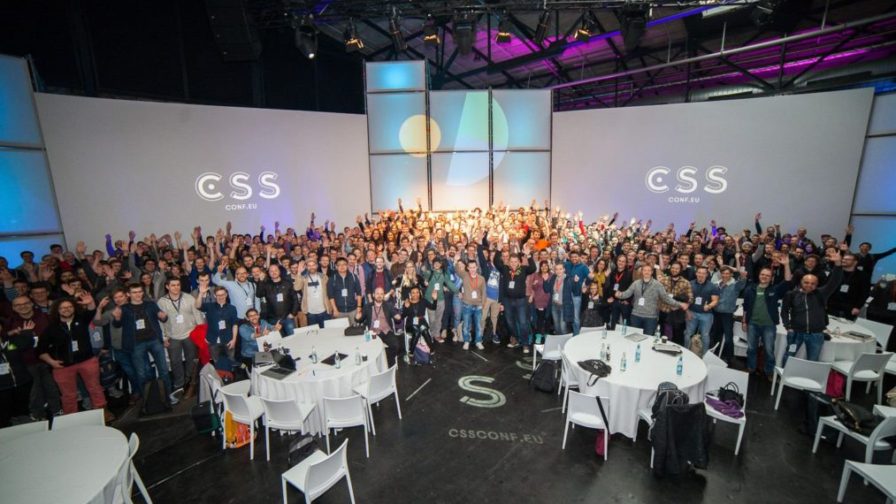
Developer communities and the people who help make them happy are a critical part of the growth and progress of computer software and the careers of developers. We recently spoke to Kristina Schneider. She’s co-founder and chief of product at Cobot, who create a software management platform for coworking and flexible workspaces globally. Outside of this role she plays a massive part in building and nurturing communities – she’s a co-organiser at CCS Conf. Eu, a not for profit conference dedicated to the designers & developers who love CSS. Kristina is also one of the community managers at Upfront, a meetup group in Berlin focused on UX/UI design and front end development. When she’s not doing all of this, she also helps with CSS classes which are an initiative of CSSconf EU and Open Tech School and help to lower the barrier of entry to learning CSS.
Kristina’s community focus really established itself when she moved to Berlin about ten years ago as a young front end developer and was seeking community. She ended up creating one of Berlin‘s earliest dev meetup groups:
“I was looking to find people doing the same as me, and I couldn’t find anyone. And also there weren’t many meetups around. So I just started my own, and it started with five or seven people.”
From this humble beginning, Kristina and her team have built a community where a weeknight meetup can attract 100 people – hugely impressive in the crowded Berlin tech scene. She details: “It’s about the need to find other people to exchange idea and discuss what we are passionate about, just to meet each other and not sit in front of our computers.”
What makes a good developer community manager?
Kristina is hugely proud of the achievements gained through running and supporting community events. She believes that recognising the pleasure in helping others is rewarding in itself:
“I think you need to be very empathetic and just understand that what you’re doing for the community is very valuable for some people. It’s especially important to recognise the people who might be different than you are and get some joy and reward out of creating inclusive communities.”
Good community-building tools
While Kristina agrees that digital tools such as Slack and website are vital as a means to spread information, the most beneficial developer community building tools are “in-person meetings because being face to face really helps to exchange information and learn from other group members. She also notes that this is equally true when it comes to the organisers themselves, as meeting in person providers a greater opportunity to resolve conflict quickly and accuracy.
The Hurdles of Community Management
Germany is a country known for its bureaucratic hurdles, and this is a challenge keenly felt by community managers who are running not for profit events, conferences, and creating communities staffed by volunteers. Kristina notes:
“I really wish that especially in Germany there were a lot less bureaucratic hurdles for installing or founding a not-for-profit organisation. It’s not that easy, and the legal bureaucracy is a huge barrier for many communities just to become a legal entity that can receive donations.”
How you and your company can help support developer communities
Like many community organisers, Kristina also dislikes the challenge of the ‘consumer mentality’ of some members, and she explains,
“Many attendees are very supportive and like to get involved, while others don’t really appreciate what organisers and volunteers are doing out of their own time, unpaid. So, I would love to see more support coming from attendees, but also companies as that’s what communities need. We value financial and volunteer support.
As with any established community groups, there’s a lot of less visible expenses that may not be apparent to event attendees: “Most communities have to cover rent for the spaces where they run their meetups, cover costs for hosting websites, paying meetup.com. We also strive to pay volunteers for their time where possible and to provide catering. So supporting our expenses is a real help and is often possible for many attendees and the tech companies associated.”
Kristina stresses that community support is always appreciated, especially for those for whom a financial contribution is not possible:
“It’s always appreciated just to ask: How can I help? Do you need a few more hands to set up the venue? Do you need people to help with social media? And for sure there’s always something to do.”
Kristina details that the most rewarding part is seeing the efforts of the community managers and organisers come together to create something exceptional:
“The work in advance can be frustrating. But the moment when you open the doors for an event and the attendees come in, and they see what you built for them, you see the lineup work really great on stage, and then you see in the faces that people are learning something in the breaks and see how people are connecting… That’s really the most rewarding aspect, to see that the work pays off, and people are connecting and forming a community.”
Codemotion is here to help
At Codemotion, we’re huge champions of community managers and here to help where we can. As Kristina says :
“I actually lost track of how many years we’ve been partnering with Codemotion. I think at least three or four years, and during that time at least one of my communities or more have been community partners and Codemotion has been really supportive. Some of our previous speakers have given presentations or staffed booths in the break out space. It all creates great interaction with people who haven’t met us before and works out well as people come and ask, ‘Hey, what are you doing here? How can we get involved? So yeah, that works out. It works very well for us.”
Read more: advanced CSS tricks that you have to know




